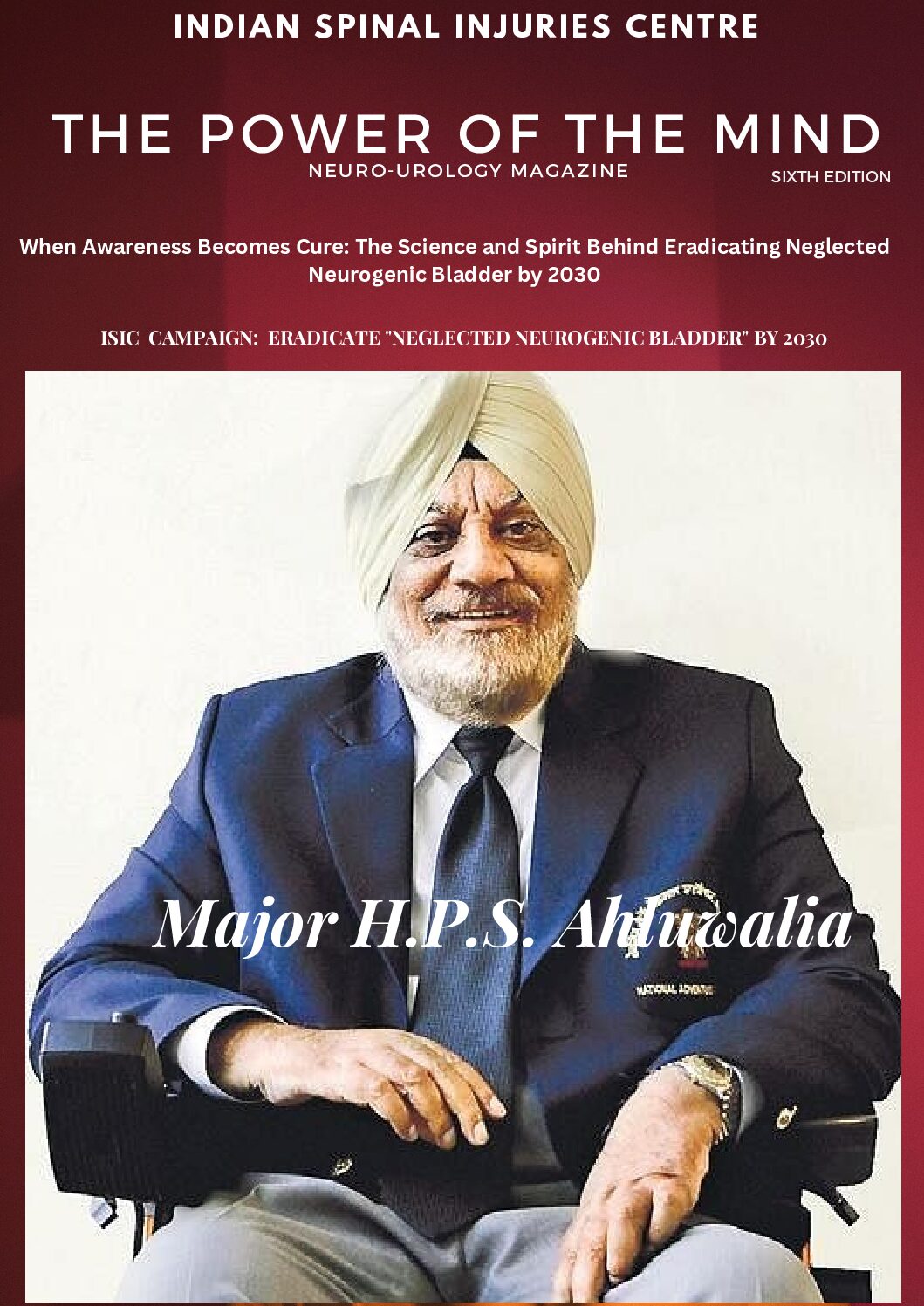When we talk about spinal cord injury, we are dealing with one of the most catastrophic injuries known to the mankind which was almost always lethal as late as the beginning of the 20th century. Thompson Walker said that the “Management of the bladder in the First World War was the surgical failure of the War”. Development of comprehensive care program by Sir Donald Munro, the Father of Paraplegia” and bladder cycling gave first ray of hope. Development of Foley catheter in 1929 was a major breakthrough in the bladder care that allowed patients to survive the neglected bladder after SCI. Sir Ludwig Guttmann laid the example of complete rehabilitationist for the world to follow. Incorporation of sterile intermittent catheterization prevented untimely deaths in SCI persons and World could see that SCI was no longer “an ailment not to be treated”.
In mid-1960s onwards there has been increasing trend to have a full time urologist in the team to look after the vital urinary tract care and this has greatly reduced the urinary tract complication related deaths from the Developed World. However the situation in LMIC like India continues to remain dismal. It`s up to us in the spine organizations to invoke and catalyze the acceptance of the importance of urological and sexual health care in Indian scenario so that we help our patients live a health active and meaningful life after a successful spine surgery. That was the aim of spine fixation after all, isn`t it…
We don`t have to re-invent the wheel. We simply have to learn from the developed world how they did it and imbibe the essential principals of comprehensive rehabilitation and SCI urocare and sexual health care and incorporate it in our practice of healthcare delivery and we can sure that there will be millions of SCI people thanking you for the concerted efforts you took for their wellbeing.
Spine surgeons and spine units play a crucial role in improving the urological care of individuals with spinal cord injuries (SCI) in low- and middle-income countries (LMICs). By adopting a comprehensive and multidisciplinary approach, they can significantly enhance the quality of urological care for SCI persons.
Here are several strategies they can implement:
- Create Multidisciplinary Teams: Establishing multidisciplinary teams that include urologists, physiatrists, nurses, rehabilitation specialists, and social workers can ensure holistic care for SCI individuals. Collaboration between these professionals helps address both medical and psychosocial aspects of urological care.
- Focus on Education and Training: Provide specialized training to spine surgeons, urologists, and other healthcare professionals on the management of urinary complications in SCI individuals. Workshops, seminars, and continuing medical education programs can enhance their skills and knowledge in this area.
- Incorporate Urological Care in Rehabilitation: Integrate urological care into the rehabilitation process. Rehabilitation centers within spine units should have resources and personnel dedicated to urological management, ensuring that SCI individuals receive consistent care and education during their recovery.
- Early Intervention: Emphasize the importance of early intervention to prevent urological complications. Spine surgeons should collaborate closely with urologists to assess bladder function as part of the initial assessment and follow-up care.
- Patient Education: Provide comprehensive education to SCI individuals and their families about urological care. Offer guidance on proper catheterization techniques, bladder management, signs of urinary tract infections, and the importance of regular check-ups.
- Develop Clinical Guidelines: Collaborate with national medical associations to develop clinical guidelines specific to urological care for SCI individuals in LMICs. These guidelines can help standardize care practices and ensure that healthcare providers are well-informed.
- Telemedicine and Outreach: Utilize telemedicine to bridge the gap between patients in remote areas and specialized healthcare providers. This can help SCI individual`s access expert advice and consultations even if they are far from a major healthcare facility. SCS and major high volume institutions can create a common framework to reach out to millions of SCI persons even in the distant and remote areas across India.
- Advocacy and Awareness: Create continuous and consistent advocacy for increased government and public awareness about spinal cord injuries and the importance of urological care. Increased awareness can lead to improved funding, policies, and infrastructure for SCI-related services.
- Collaboration with NGOs and International Organizations: Partner with non-governmental organizations (NGOs) and international organizations that focus on spinal cord injury care. These partnerships can bring in expertise, resources, and funding to support urological care initiatives.
- Data Collection and Research: Encourage research focused on urological care and outcomes in SCI individuals within LMICs. Collecting data can help identify trends, challenges, and areas for improvement, leading to evidence-based interventions. SCS can take lead role in creating a plan to achieve these objectives.
- Affordable Solutions: Urologists in these high volume centres can collaborate with medical device manufacturers to develop affordable and accessible urological equipment and supplies specifically tailored to the needs of SCI individuals in LMICs.
By implementing these strategies, spine surgeons and spine units in low- and middle-income countries can make significant strides in improving the urological care of individuals with spinal cord injuries. Their efforts will not only enhance the quality of life for SCI persons but also contribute to the overall advancement of spinal healthcare in these regions.







